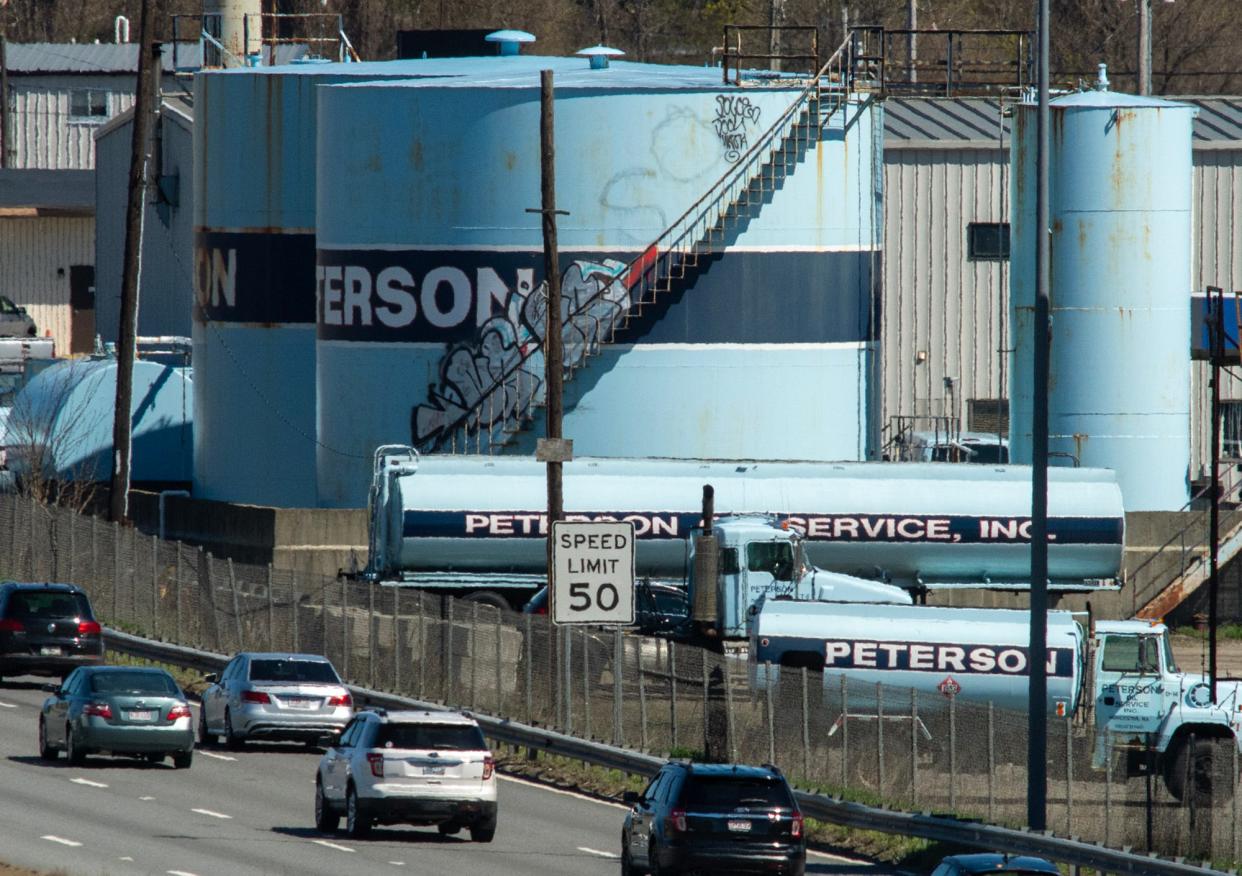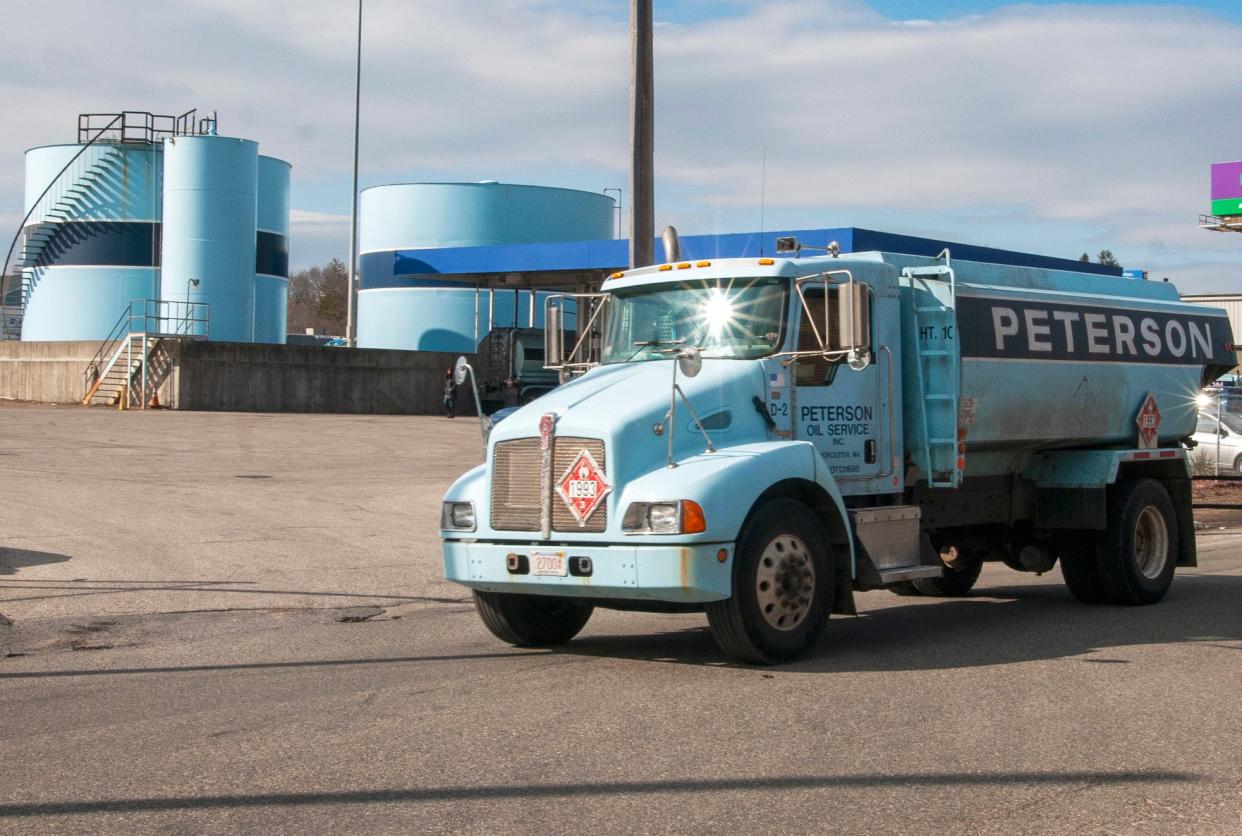Thousands could benefit from $5.6 million settlement of Peterson Oil fuel mix allegations

WORCESTER ― Thousands of customers of Peterson and Cleghorn Oil could stand to benefit from a $5.6 million partial settlement of a long-running class-action lawsuit regarding the mix of its oil, court records show.
Documents filed this month in Suffolk Superior Court show a judge granted preliminary approval of the settlement, which was reached by an insurer for Worcester-based Peterson Oil, which also owns Cleghorn Oil, over the company’s objection.
Documents in the case show a judge last year ordered a $6 million attachment against Peterson's properties after the plaintiffs argued there wasn’t enough insurance money to cover all potential damages. They argued those damages could ultimately total tens of millions of dollars.
Lawyers for Peterson, in opposing approval of the partial $5.6 million settlement, wrote that the company denies wrongdoing and that a judge’s signoff would “effectively destroy” the company’s ability to continue defending the case.
Peterson’s owner, Howard Peterson, said in a July 2023 sworn deposition attached to court filings that he owed more than $3 million to his bank to avoid foreclosure and that the bank has closed his line of credit.
Lawyers for the customers seeking approval of the settlement recently argued there was a “heightened risk” that Peterson would become insolvent or go bankrupt — a notion its lawyer, Louis M. Ciavarra, disputed Thursday.
Peterson Oil is “successful, financially strong, and at no risk of filing for bankruptcy,” Ciavarra said, adding the concerns Peterson testified to were legitimate at the time, but no longer.
Ciavarra declined to discuss current financial information in detail. Asked about the $3 million owed in 2023, he said it was a “small percentage” of company revenue.
Ciavarra said the insurance company’s decision to settle was a business decision that it’s legally entitled to make, but that Peterson is confident it will ultimately prevail because it has done nothing wrong.
“It’s been in business for 70 years and it fully expects to be in place for another 70,” he said.
The legal dispute revolves around allegations that Peterson Oil has, since 2012, put too much biodiesel in the fuel it delivered its customers, causing systems to break down and increasing the amount of fuel purchases needed to deliver the same amount of heat.
Lawyers for the plaintiffs, who include multiple Worcester County residents and Temple Beth Israel, allege their systems broke down because the concentrations of biofuel, derived from plants and animals, were elevated above industry norms without their consent.
They say Peterson stood to make a profit from using more biodiesel than conventional oil in its product because it owns a facility where it produces its own biodiesel fuel.
Howard Peterson has, in past interviews and court arguments, denied any wrongdoing. Ciavarra Thursday repeated Peterson’s position that he has been unfairly targeted for being a “pioneer” in the push to help climate change by burning cleaner fossil fuels.

Ciavarra argued expert opinions will show that biofuel isn’t the danger to systems the plaintiffs have portrayed and noted that a number of other states have mandated a shift to cleaner oil.
Rhode Island has mandated a shift to 50% biofuel in heating oil by 2030, for instance. A state website notes heating oil can be sold at up to 99% biodiesel content, noting that “for very high biodiesel blends, you may need minor upgrades to your furnace or boiler.”
Jeffrey Strom, a lawyer for the plaintiffs, wrote in an email Thursday that, until 2020, no burner was rated to handle above 5% biodiesel, “and despite the clear and unequivocal ratings of the manufacturers, Peterson was delivering 80% biodiesel blends prior to 2020 and sometimes even more.”
Court records show the Massachusetts Department of Energy Resources, following an audit, ordered Peterson in 2018 to “add information to their (customer) notification that contains the maximum biodiesel blend that is delivered to customers.”
Customers who filed the lawsuit said their burners broke down after receiving fuel from Peterson and Strom wrote in his email that “multiple Peterson Oil technicians, including current technicians, have also confirmed the problems with biodiesel."
“In depositions that have been quoted on the record, Peterson Oil technicians testified that Peterson Oil’s biodiesel caused tanks to leak prematurely and that biodiesel was causing significant operational problems for Peterson Oil’s customers,” he wrote.
In legal filings, Strom wrote that the $5.6 million settlement only pertains to about one-sixth of the potential claims against Peterson.
The legal case against the company, originally filed in 2019, now spans thousands of pages and multiple lawsuits in state and federal court.
Court documents show that Philadelphia Indemnity Insurance Co., one of three insurers for Peterson since 2012, agreed to the $5.6 million payout after extensive negotiations that included mediation, the exchange of hundreds of thousands of documents and more than 40 days of depositions.
The settlement only covers customers who received heating oil from Peterson or Cleghorn from July 5, 2016, to July 5, 2019, and only applies to one of two main legal liabilities the plaintiffs have claimed — for property damage.
The other allegation, for economic damages, as well as damages for property damage outside the 2016 to 2019 time frame, are still being litigated.
Two other insurers for Peterson are suing the company alleging they aren’t liable to pay for property damage, while all the insurers deny liability for economic damages, records show.
The plaintiffs have alleged economic damages for the class total $28 million and in 2023 asked a judge to protect their interest in that amount by attaching Peterson Oil’s properties as well as its bank accounts and other measures.
Worcester Superior Court Judge William Ritter approved an attachment of $6 million on real estate and denied the other requests, writing that the $28 million estimate was not fully supported in the record and noting that the plaintiffs have yet to prevail in court on the merits of their case.
Ciavarra said he's concerned Peterson isn’t getting a fair shake in the courts or publicly. Many loyal customers have stuck by the company, he said, and it's "frustrating" to see the company's reputation, in his eyes, unfairly tarnished.
“History, and the science, is in (our) side, and we are confident the jury will be too someday,” he wrote in an email, adding, “For now, the fact that one insurance company decided to settle has nothing to do with (Peterson Oil) or its products.”
A website regarding the class-action lawsuit, petersonoilclassactionsettlement.com, has been set up to inform consumers of their rights.
Strom, asked by the T&G how many people are potential class members, said the plan is to send notices to about 16,000 customers.
People who lost heat or incurred repair costs in the covered period need to file claims by July 22 in order to be eligible to receive compensation out of a pool of around $600,000.
A separate pot of about $2.8 million is available for customers for corrosion damage to their hearing equipment. That money will in most cases be automatically paid out, the settlement website says, based on how much oil customers received from Peterson over the time period.
The balance of the $5.6 million is reserved for lawyers' fees and other costs of bringing the suit.
The settlement won’t be final until a “fairness” hearing, at which consumers can object to the settlement, is held. That hearing is slated for July 16 at 2 p.m. in courtroom 1017 of Suffolk Superior Court in Boston.
While about 16,000 people are anticipated in the current settlement, the entire class that could eventually stand to benefit from the lawsuit is estimated to be 27,000 customers, court records show.
The class-action lawsuit is not the first time Peterson has faced legal action with respect to its heating oil mix, as the company, without admitting wrongdoing, agreed to pay the state $450,000 in 2021 after the attorney general alleged Peterson sold its oil with higher-than-contracted levels of biodiesel.
The attorney general's office also alleged the fuel it received caused problems to state systems. Ciavarra said Thursday that the attorney general's case was based on a different, specific contract and that comparing it to the consumer lawsuit was like comparing “apples and oranges.”
The Better Business Bureau revoked Peterson and Cleghorn's accreditation shortly following its settlement with the AG.
This article originally appeared on Telegram & Gazette: Partial settlement reached in Peterson Oil fuel mix class action suit
